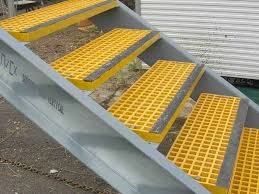
-
 Afrikaans
Afrikaans -
 Albanian
Albanian -
 Amharic
Amharic -
 Arabic
Arabic -
 Armenian
Armenian -
 Azerbaijani
Azerbaijani -
 Basque
Basque -
 Belarusian
Belarusian -
 Bengali
Bengali -
 Bosnian
Bosnian -
 Bulgarian
Bulgarian -
 Catalan
Catalan -
 Cebuano
Cebuano -
 China
China -
 China (Taiwan)
China (Taiwan) -
 Corsican
Corsican -
 Croatian
Croatian -
 Czech
Czech -
 Danish
Danish -
 Dutch
Dutch -
 English
English -
 Esperanto
Esperanto -
 Estonian
Estonian -
 Finnish
Finnish -
 French
French -
 Frisian
Frisian -
 Galician
Galician -
 Georgian
Georgian -
 German
German -
 Greek
Greek -
 Gujarati
Gujarati -
 Haitian Creole
Haitian Creole -
 hausa
hausa -
 hawaiian
hawaiian -
 Hebrew
Hebrew -
 Hindi
Hindi -
 Miao
Miao -
 Hungarian
Hungarian -
 Icelandic
Icelandic -
 igbo
igbo -
 Indonesian
Indonesian -
 irish
irish -
 Italian
Italian -
 Japanese
Japanese -
 Javanese
Javanese -
 Kannada
Kannada -
 kazakh
kazakh -
 Khmer
Khmer -
 Rwandese
Rwandese -
 Korean
Korean -
 Kurdish
Kurdish -
 Kyrgyz
Kyrgyz -
 Lao
Lao -
 Latin
Latin -
 Latvian
Latvian -
 Lithuanian
Lithuanian -
 Luxembourgish
Luxembourgish -
 Macedonian
Macedonian -
 Malgashi
Malgashi -
 Malay
Malay -
 Malayalam
Malayalam -
 Maltese
Maltese -
 Maori
Maori -
 Marathi
Marathi -
 Mongolian
Mongolian -
 Myanmar
Myanmar -
 Nepali
Nepali -
 Norwegian
Norwegian -
 Norwegian
Norwegian -
 Occitan
Occitan -
 Pashto
Pashto -
 Persian
Persian -
 Polish
Polish -
 Portuguese
Portuguese -
 Punjabi
Punjabi -
 Romanian
Romanian -
 Russian
Russian -
 Samoan
Samoan -
 Scottish Gaelic
Scottish Gaelic -
 Serbian
Serbian -
 Sesotho
Sesotho -
 Shona
Shona -
 Sindhi
Sindhi -
 Sinhala
Sinhala -
 Slovak
Slovak -
 Slovenian
Slovenian -
 Somali
Somali -
 Spanish
Spanish -
 Sundanese
Sundanese -
 Swahili
Swahili -
 Swedish
Swedish -
 Tagalog
Tagalog -
 Tajik
Tajik -
 Tamil
Tamil -
 Tatar
Tatar -
 Telugu
Telugu -
 Thai
Thai -
 Turkish
Turkish -
 Turkmen
Turkmen -
 Ukrainian
Ukrainian -
 Urdu
Urdu -
 Uighur
Uighur -
 Uzbek
Uzbek -
 Vietnamese
Vietnamese -
 Welsh
Welsh -
 Bantu
Bantu -
 Yiddish
Yiddish -
 Yoruba
Yoruba -
 Zulu
Zulu
fiberglass for steel smelting plant.
The Role of Fiberglass in Steel Smelting Plants
Fiberglass, a composite material made from fine glass fibers, has found numerous applications across various industries, and the steel smelting sector is no exception. The use of fiberglass in steel smelting plants presents several advantages, enhancing both efficiency and safety while contributing to environmental sustainability.
The Role of Fiberglass in Steel Smelting Plants
Moreover, fiberglass is lightweight and possesses high strength, making it an excellent material for constructing various equipment used in smelting plants. The tooling, ductwork, and containment vessels made from fiberglass can withstand harsh conditions, including high temperatures and corrosive atmospheres, while being easier to handle and transport than traditional materials like steel or concrete. This property enables manufacturers to enhance the design and flexibility of their operations, leading to improved production processes.
fiberglass for steel smelting plant.

Safety is another critical aspect where fiberglass plays a vital role in steel smelting plants. The handling of molten metal poses significant risks, including burns and injuries caused by equipment failure. Fiberglass, with its non-conductive properties, minimizes the risks associated with electric shocks and serves as an ideal alternative for electrical insulation. Furthermore, the inherent strength of fiberglass reduces the likelihood of structural failure in high-stress environments, contributing to a safer operational atmosphere.
From an environmental perspective, the integration of fiberglass composites aligns with the growing emphasis on sustainability within the steel industry. The manufacturing processes for fiberglass can utilize recycled materials, and its longevity reduces the need for frequent replacements, thereby conserving resources. Moreover, the energy savings achieved through improved insulation directly contribute to lower carbon footprints.
In conclusion, the incorporation of fiberglass in steel smelting plants significantly enhances operational efficiency, worker safety, and environmental sustainability. As the steel industry seeks innovative solutions to meet modern challenges, fiberglass stands out as a versatile material that can contribute to a more resilient and eco-friendly future. Embracing this advanced composite technology can be pivotal for steel smelting plants looking to remain competitive while adhering to stricter regulations and consumer demands for sustainability.









